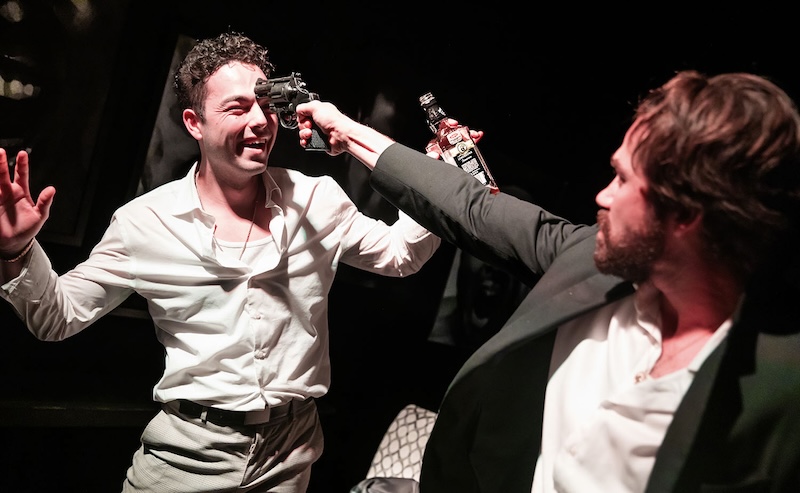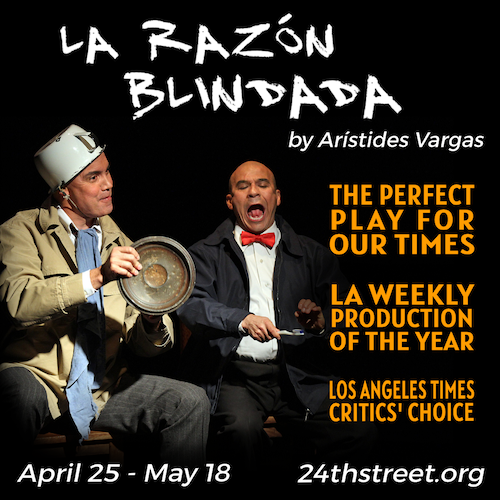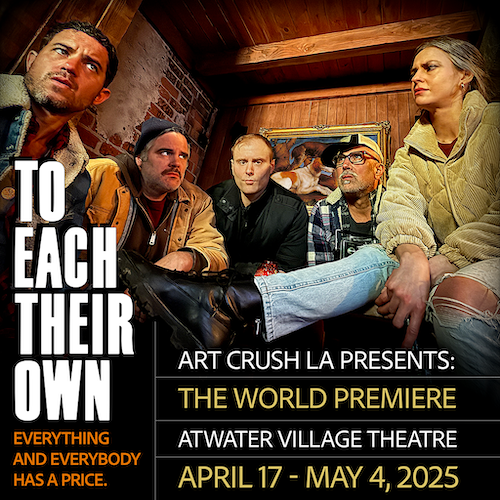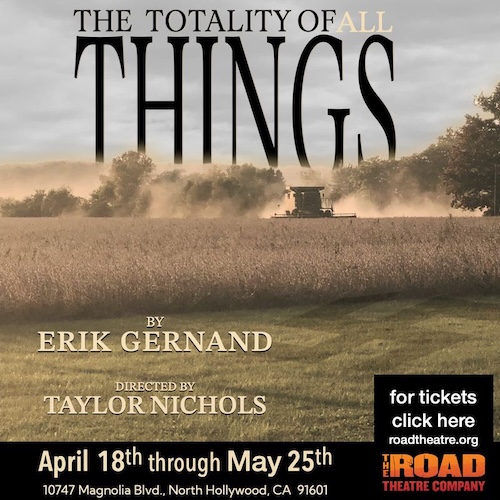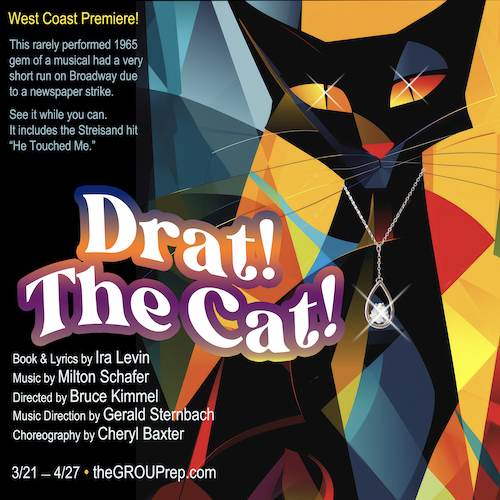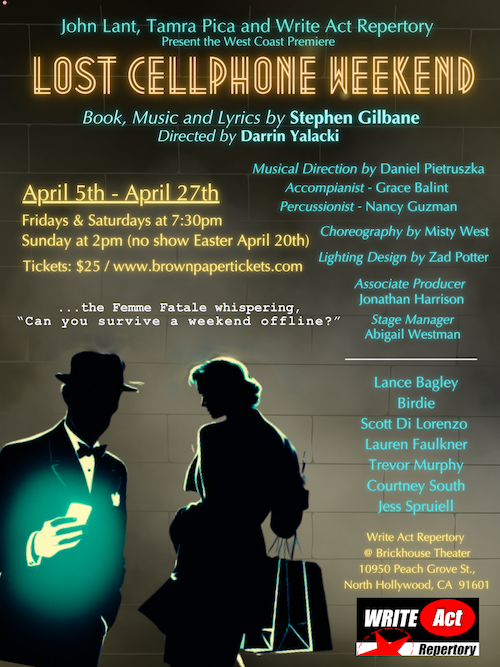
Nick Osborne and Anthony Casabianca (Photo by Grant Terzakis)
Reviewed by Martίn Hernández
Playhouse West
Through May 5
RECOMMENDED
“How heavy do our sins weigh on the scale of civilization?” That is a heady question to ask anyone, but it is really a stretch for seasoned Mafia hitman Max (Nick Osborne). Considering he and his partner Bobby (Anthony Casabianca) whack the wrong guy and Max is tormented by the voices of his past victims, maybe his conscience has finally caught up with him. But in his line of work there is no room for conscience.
Set in the late 1990s, playwright Jason Milligan’s work is an anxiety-filled excursion as the duo desperately try to figure out how to square things with The Boss (Billy Walker). Director Wolfgang Bodison has taken liberties with Milligan’s characters, which heightens the tension as well as the text’s dark comedy. With limited space and budget, Bodison and his crew use this to their advantage, compensating with creative staging, sly character turns, and exceptional performances.
As the older Max and his protégé Bobby await their intended target in New York City’s Grand Central Station, Max scribbles in the notepad he keeps hidden in a briefcase while Bobby gleefully reminisces about their past jobs. While they are close friends, that intimacy grates at times. Bobby’s boyish demeanor belies a sociopathic streak that is beginning to unnerve Max, especially when Bobby quizzes him about what he is writing. Bobby also resents Max’s reminding him of the menial job he held before his mentor recruited him into the business.
After disposing of the wrong prey in a grisly yet funny scene, Bobby convinces Max to take a late-night road trip to The Boss’s Vermont home to explain things before he discovers their error. Along the way, Max tries to keep Bobby’s hands off his notepad and Bobby frets that his low status in the organization means he could easily be eliminated. As Max’s apprehension increases, we are privy to his nightmares, which depict him hanging portraits of his victims in mid-scream on both sides of the stage. That The Boss turns out to be an amateur painter makes for a cryptic connection.
Walker’s inspired take as The Boss is atypical for a mob chief, as exemplified by his choice for a houseboy (a mostly silent Evan Adams), though his Vito Corleone impersonation is a nod to the old school. The Boss’s calculating personality, expressed in sinewy movements both menacing and seductive, keeps both of his “boys” on edge as the assassins assess what their fates will be. Much like a corporate executive, which he is in many respects, The Boss weighs the worth of his commodities, using a bizarre but effective parable to drive home how he values a prized but now damaged possession.
Despite a few seemingly rushed lines, Osborne and Casabianca are as convincing in their characters’ comic moments as the dramatic ones, realistically depicting a sincerely fraternal alliance coming apart at the seams. While Bodinson freezes his actors in compelling tableaux at the end of each scene, their openings — with the sound of the racking and firing of a gun — gets tedious. A smoke machine gives the stage an appropriately ominous touch, while strings of mini-Christmas lights, representing stars whenever Max and Bobby exit the car they travel in, add a charming touch. Some of Bodison’s soundtrack choices (Kool and the Gang and Dick Dale, for example) give the production an indulgent Tarantino-esque tinge while others (from Johann Sebastian Bach to Carl Orff) underscore The Boss’s hold over the lives of his minions.
Playhouse West – Magnolia Studio, 10634 Magnolia Blvd., N. Hollywood., Sun., April 28, 7 pm; Sun., May 5, 7 pm; thru May 5. Playhousewest.com/reservations Running time: two hours with a 15 minute intermission.


